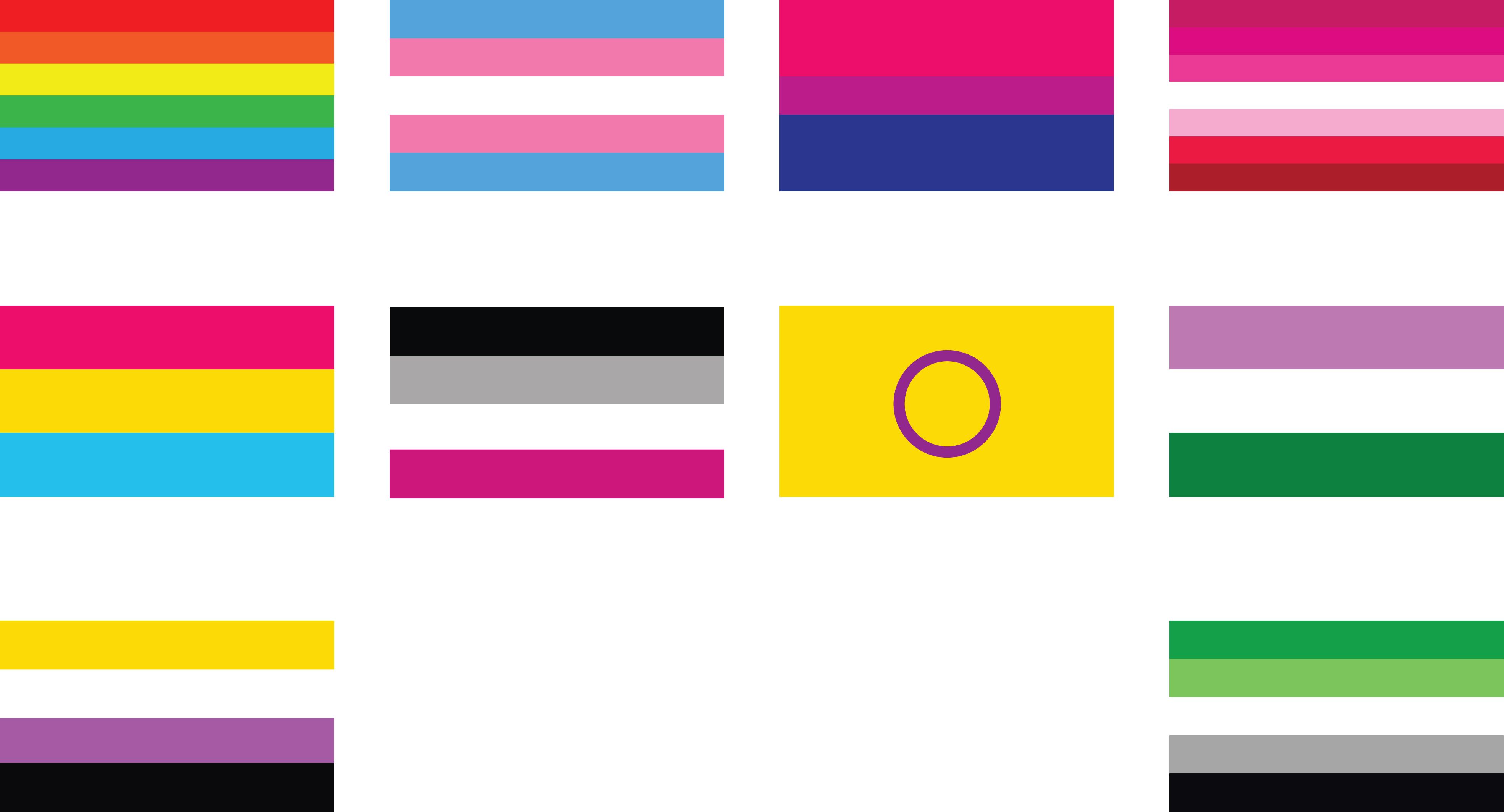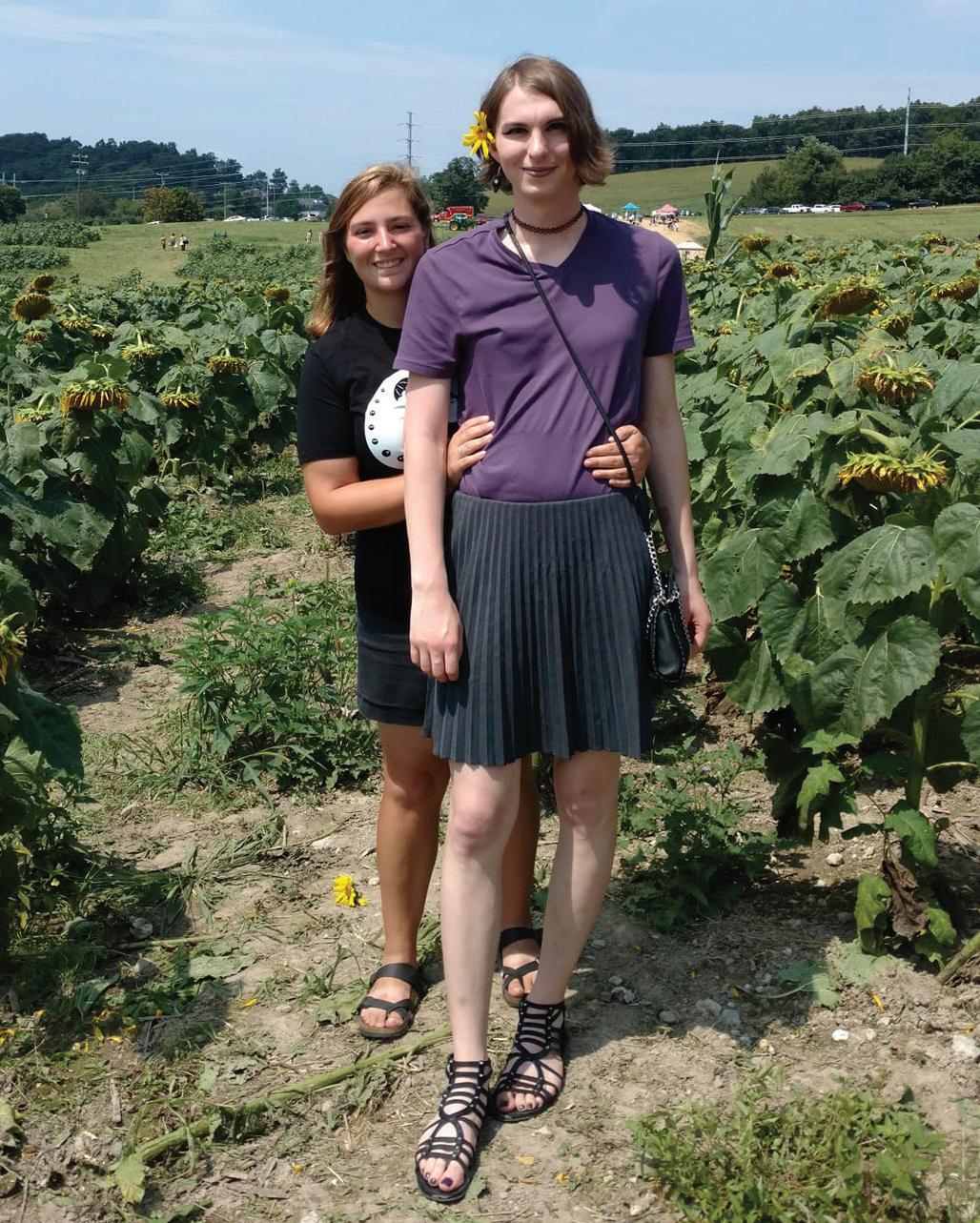
4 minute read
VOICES OF PRIDE
Two Dukes discuss what it's like to be part of the LGBTQ community on campus
When Dylan Marti saw that his JMU acceptance letter used his preferred name, “Dylan,” his heart started to pound. He said other Virginia schools didn’t use that name and was thankful JMU had the option to use a preferred name for incoming emails and other university-related information addressed to Marti.
Advertisement
Yet, when Marti, an intelligence analysis major who was born female but now identifies as male, arrived at JMU, the name “Dylan” didn’t appear on his JACard, so he was reminded of a name he didn’t go by each time he swiped into his dorm building or handed it to a dining-hall employee.
“I wish the preferred name showed up on more stuff,” Marti said. “But, in general, people in JMU are pretty good.”
Despite feeling uncomfortable having to live in a hall with females, Marti said his resident adviser was respectful of his pronouns. He’d reached out to his roommate before moving in, who was accepting, but her family wasn’t. So, when her parents were around, he’d ask himself, “How much do I want to fight for my identity today?”
“Being involved in a lot of queer spaces, sometimes I forget not everyone has the baseline knowledge that some people are trans,” Marti said. “Not everyone knows about it or recognizes trans people are around. That’s where a lot of difficulties come in.”
Marti said he enjoys going to the Lavender Lounge in the Student Success Center, a safe space for LGBTQ-identifying students, and is part of Madison Equality, a student group that promotes acceptance of all gender identities and expressions and sexual orientations. He called the JMU LGBTQ community “tight-knit,” and a place where he could go to feel support from people who’ve experienced similar challenges.
Miranda Touchstone, a history major and treasurer of Madison Equality, said she’s participated in conversations in the Lavender Lounge where everyone can feel included, and even found a roommate through talking to students there. The community’s support has navigated her through difficult times, especially during her first year at JMU transitioning as a trans female.
“I also had a few times where people would call me names when just walking along,” Touchstone said. “They’d think I couldn’t hear because I’d have earbuds in. But, I could see them looking at me and I turn the volume down. I get a lot of stares.”
At the beginning of Touchstone’s transition, she said, she’d tell her professors her preferred name, and most of them were fine with it, except one. Touchstone said this professor wasn’t welcoming and never used her preferred name.
She felt stuck and said she had no idea what to do. Eventually, she figured out she could report the professor to the Office of Equal Opporunity and ended up doing so.
“I feel like it would’ve been nice if JMU had made it more obvious that I can report people,” Touchstone said. “I just wish I had that knowledge ahead of time and it was more well-known.”
Marti said a challenge he’s faced is feeling safe as a queer person in Harrisonburg, outside of JMU’s campus. He said the city is more conservative than Northern Virginia where he’s from, which is something he’s not used to.
“I don’t think I’m in danger or anything, but it’s a little scarier to hop on the bus and go shopping on Sunday, and see NRA stickers on trucks, Confederate flags around,” Marti said.
Marti and Touchstone agree that JMU and other universities should implement LGBTQ topics into general education, so students and professors get a better understanding of the community.
Touchstone said she took a psychology class and felt like it was focused on heterosexual people and wished it was more inclusive.
“I definitely think that’s a big deal,” Touchstone said. “Especially in the medical field and any human service field, you should know about these things, because like, you’re gonna deal with every type of person eventually, so you should know about them.”
Marti said LGBTQ issues are a more recent topic in society, especially considering the legalization of same-sex marriage in the U.S. happening in 2015. He hopes that over time, there’ll be more exposure and advocacy for LGBTQ people.
“I think the most important thing is you have to advocate for yourself,” Marti said. “You have to be the one to go out there and advocate for yourself because other people are not gonna know what you want, or what to do.”

Courtesy of Dylan Marti

Dylan Marti
Intelligence analysis major







